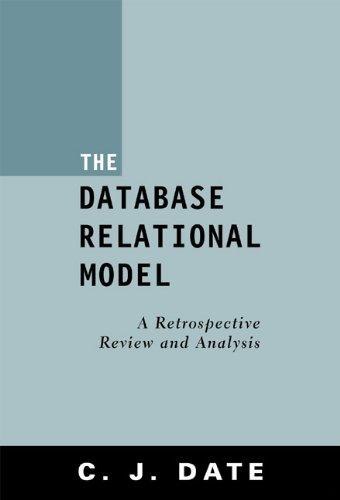Answered step by step
Verified Expert Solution
Question
1 Approved Answer
Create and Manage a Nested Organizational Unit Structure For this first part, you will get practice creating organizational units. Consider this an exercise in learning
Create and Manage a Nested Organizational Unit Structure
For this first part, you will get practice creating organizational units. Consider this an exercise in learning the interface for creating and managing OUs. The tasks are taken from W Panek, MCSA: Windows Server Complete Study Guide.
Start the Server VM you can leave the Windows client VM off for now and make sure you are logged in as the Administrator. Open the AD Users and Computers tool.
Rightclick the name of your domain and choose New Organizational Unit. Enter North America, for the name of the OU and uncheck the option for protecting it from accidental deletion you will do this for all the OUs you create in this exercise, to make it easier to modify the structure later Click OK to create this new top level OU
Using the same process, create the following toplevel OUs in your domain making sure you uncheck the option for protection from accidental deletion in each case: Asia, Europe, Middle East, and South America.
Within the North America OU create the following nine secondlevel OUs by rightclicking on North America and selecting New Organizational Unit: Boston, Corporate, Los Angeles, Mexico City, New York, San Diego, Toronto and one with your name.
In the Asia OU create: India, Japan, South Korea.
In the Europe OU create: France, Germany, Italy, UK
In the Middle East OU create Egypt, UAE.
In the UK OU create the following thirdlevel OUs: Edinburgh, London, Manchester.
In the North America Corporate OU create: Engineering, Human Resources, Production, Research, Sales.
Pick any one of the country OUs other than UK and create three OUs inside it representing any three cities from that country.
Obtain a screenshot of the AD Users & Computers window that shows all the OUs you have created in the left hand folder tree. You will have to expand the OUs to do so and you may need more than one screenshot if the OUs do not fit in the window.
Delete the Production OU by rightclicking it and selecting Delete. If you did not remember to unprotect this OU from accidental deletion, you will first have to open the OUs properties, go to the Object tab, and uncheck that option. You will then be able to delete it
Rename the Human Resources OU to HR by rightclicking it and selecting Rename you can also rename it by simply clicking it and pressing F
Move the Sales OU into the New York OU by rightclicking Sales and selecting Move. In the next window, expand the North America branch and click New York. Click OK to complete the move.
You can also move OUs by dragging. Make sure the San Diego OU is visible. Drag the Engineering OU and drop it onto the San Diego OU If a warning message appears, click Yes to confirm the move. If an Access Denied error appears, it is probably because the Engineering OU is protected from accidental deletion. Open its Properties, go to the Object tab, and uncheck Protect from accidental deletion. You should then be able to complete the move.
Obtain a screenshot of the AD Users & Computers window that shows the completely expanded North America OU branch with the changes you have made.
give me step by step instructions on how to do this please
Step by Step Solution
There are 3 Steps involved in it
Step: 1

Get Instant Access to Expert-Tailored Solutions
See step-by-step solutions with expert insights and AI powered tools for academic success
Step: 2

Step: 3

Ace Your Homework with AI
Get the answers you need in no time with our AI-driven, step-by-step assistance
Get Started


